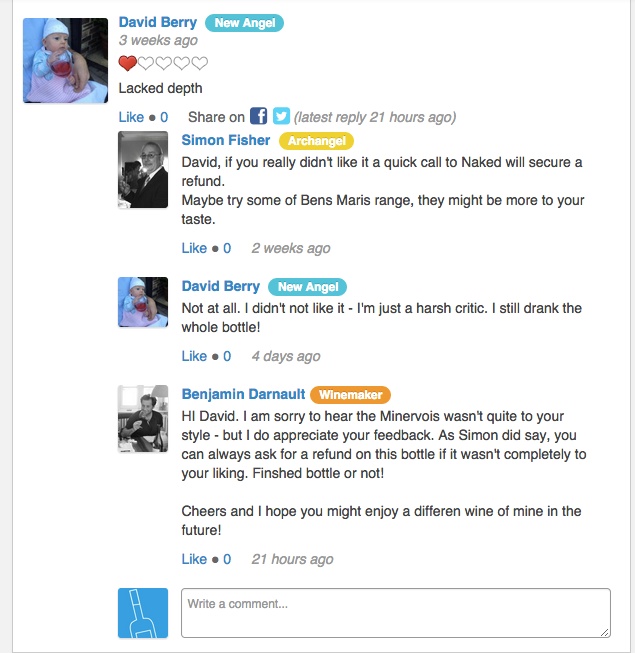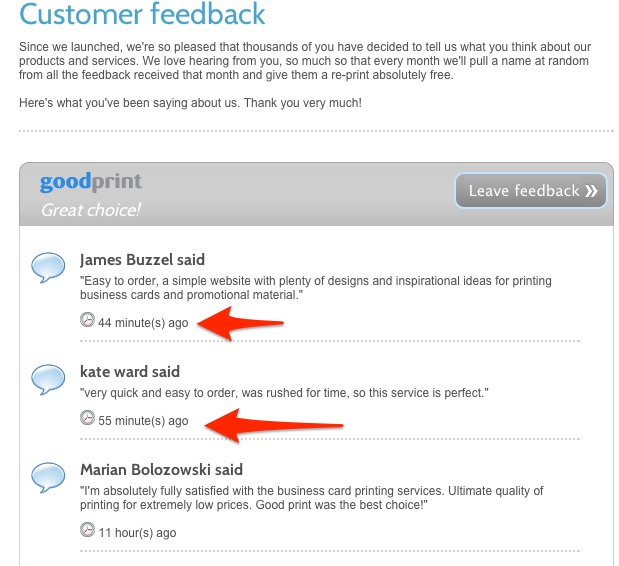Use Social Proof to Increase Conversions

Here’s an undeniable fact, we’re social creatures.
We often like things just because others have liked them too.
That’s a reason why we pass an empty restaurant and choose one with patrons inside.
Or get excited by those “X happy customers served to date” signs. After all, could “hundreds of past customers” be all wrong?
We conform to the actions of others under the assumption their actions are correct and confirm the quality.
This behaviour is called social proof and it’s one of the strongest tactics to convince someone that it’s safe to buy from you.
Social Proof is a Form of Conformity
Wikipedia defines social proof as:
“A psychological phenomenon where people assume the actions of others in an attempt to reflect correct behavior for a given situation. This effect is prominent in ambiguous social situations where people are unable to determine the appropriate mode of behavior, and is driven by the assumption that surrounding people possess more knowledge about the situation.”
In other words, when you find yourself in a situation where you simply don’t know how to behave, you’ll look at others for cues as to what a correct form of behaviour should be.
This behaviour also transpires onto product selection and a purchase decision.
A 1998 research by David Wooten proved that when evaluating a product, customers were more likely to base their decision on the opinions of others.
Two years ago, Dimensional Research found that 90% of customers use reviews to influence their buying decision (source).
And according to iPerceptions study, 63% of customers are more likely to purchase from a site if it features product ratings and reviews (source).
Needless to say, social proof is a strong online purchase motivator. And you can use it to influence more people to buy from you.
Here’s how.
Use Numbers
Showing the number of sales of a particular product, how many happy customers you have or how many total sales you’ve generated all speaks of the popularity of your product.
Themeforest does it quite well:
- they include a number of sales beside each product they sell
- feature a total amount of comments
- highlight how many people have rated a product and what the overall rating is
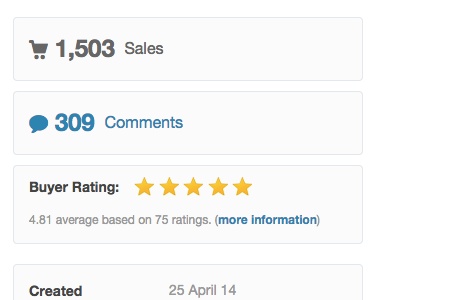
Hotel.com displays information on the last time a particular room was booked. They also display a number of verified guest reviews it received.

Display Badges and Media Mentions
Has your store received good press recently? Or been featured in a well-known media? Feature this on the site to add trustworthiness to your brand.
This type of social proof is often called expert proof. It can include a mention on a popular blog or any other form of expert endorsement.
On their homepage City Prints feature a list of media outlets they’ve been featured on.

WestCoastShaving’s site features a dedicated page listing various media coverage of their brand. They also highlight any such achievement on their blog.
Display Ratings and Reviews
A user social proof – approval from your current customers – is a powerful influencer on many people’s buying decision.
After all 90% of customers confirm that their buying decision is influenced by online reviews. And 63% of them say they prefer to buy from sites that display reviews and ratings.
Figleaves.com for instance discovered that products with reviews had 12.5% higher conversions than those without (source).
Why? Because reviews are real. A reviewer tells their story using their own words and shares their own experiences. This helps other users to relate to it better than your copy could.
Westcoastshaving offer star ratings and number of reviews for each product in their catalog.
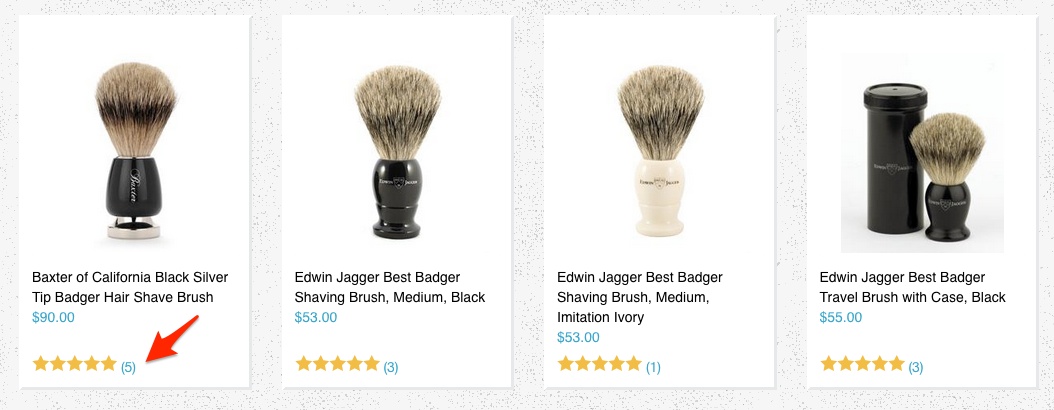
ExpressWatches features a dedicated reviews widget showing customer comments they receive on Trustpilot.
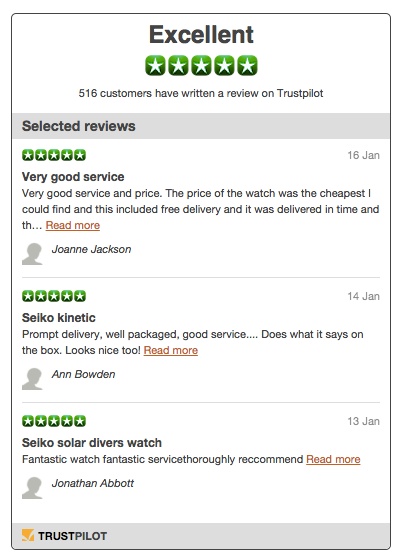
NakedWines features a very lively reviews section where customers can voice their opinions but also, their voices are heard.
Share Customer Stories
Similar to reviews, customer stories confirm that someone has bought from you in the past and you delivered. They share that person’s story in dealing with your business and can provide a strong opportunity to overcome a new customer’s objections.
Goodprint’s site features a customer feedback section, allowing any customer to publish what they thought of the service.
Show How Many Followers You Have
Last but not least, the number of your social media followers is another proof of your popularity. Depending on your industry and target market, it might prove to be more influential than any other forms of social proof.
On the other side, low followers numbers can actually hurt your brand image. In such cases, it’s better to refrain from showcasing how many people follow you on social media until you build those numbers up.

Photo courtesy of cooldesign at FreeDigitalPhotos.net


